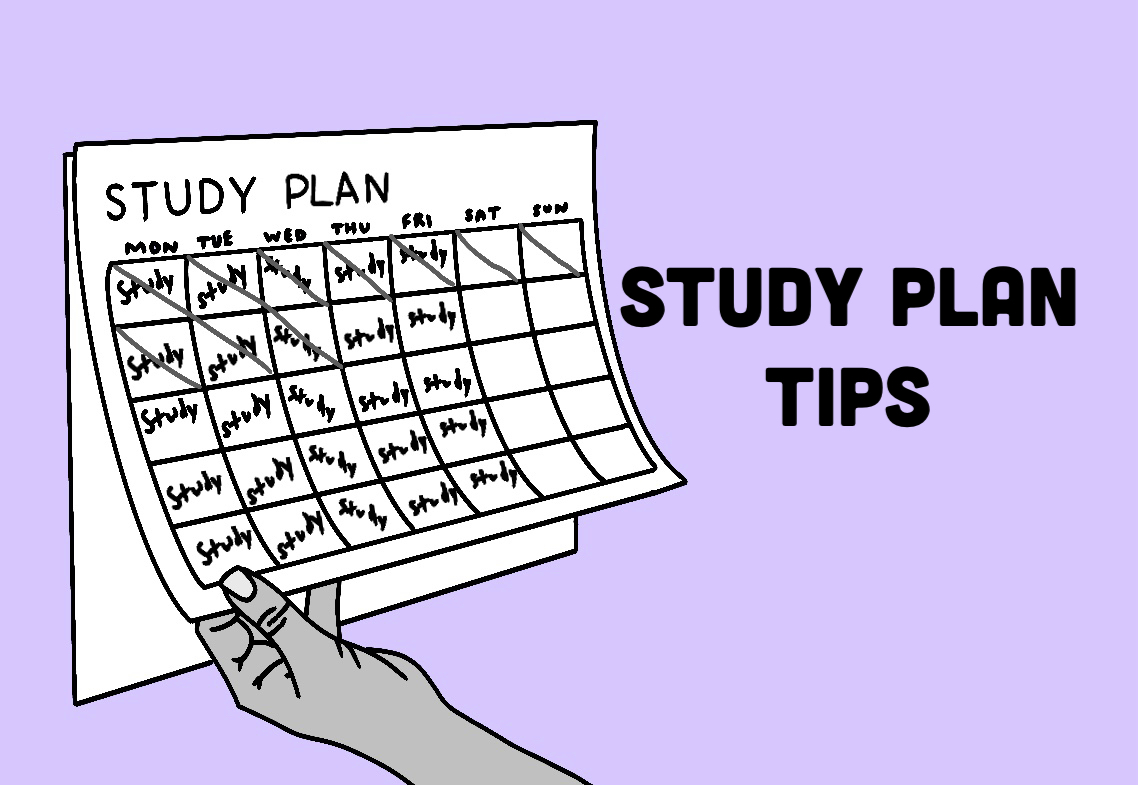WhatsApp:
+353 87 202 0389
Being organised and having a study plan is the only true way to succeed in your exams.
All of the study hacks in the world won’t help you unless you have your ducks in a row.
And the best part is, you don’t even need to spend much time making a study plan – it could be as little as 5 minutes of preparation before you go to bed!
In this blog, we’ll talk about how spending a couple of minutes making a study plan will save you a lifetime of pain and help you achieve the best results you possibly can.
Separating fact from fiction…
That’s right, we said a couple of minutes. Not a couple of weeks, days, or even hours. Minutes.
The biggest mistake you can make here is thinking you need loads of time (or money) to make a study plan.
It takes all of 5 minutes for you to organise yourself for the day ahead, and only a little more to get organised for the week.
Anything more than that is just procrastination, which is exactly what getting a study plan is supposed to help you avoid.
You do not need to spend hours putting together a visually stunning study plan with fancy highlighters and gel pens that you spent a fortune on.
All you really need is one blank page and a pen. Or, if you’re more digitally inclined, you could use a Google Sheets or Excel spreadsheet.
…but how do I start ‘getting organised’?
If you’ve got out your pen and paper, and are still unsure as to how you’re going to get organised, that’s okay. We can talk you through next steps.
First of all, you need to ask yourself how much time you are willing to spend studying on the day you’re making a study plan for.
If it’s a weekday, it’s pointless writing down any more than 3.5 hours, because you probably only finish school at 4pm, and it’s important you take some time to relax or exercise, eat, and spend time with friends or family.
From there, decide how you will divide up the time you are going to spend studying. Everyone does this part differently. Some people use the Pomodoro technique. We suggest blocks of 20-30 minutes, depending on age, on a given topic, with short breaks between each session.
For example, if you are a Leaving Cert student, your study plan could be to spend from 5.00pm to 5.30pm studying mass movement, take a 5 minute break, and then spend from 5.35pm to 6.05pm studying maths proofs, followed by another break, and finally another topic before dinner time.
Now, this plan won’t suit everyone, of course, but it’s a great place to start if you haven’t figured out what does work.
Remember to ‘Think in Ink’
We spoke not too long ago about thinking in ink. Well, this approach extends beyond just studying itself. It also helps you get organised.
If you write down everything you’re going to get done for the day, you are far more likely to achieve it. Don’t ask why, but it’s an old adage, and in our experience, it proves true!
When you’re packing your schoolbag up in the evening after homework and study, take an extra 5 minutes to write down the POA (plan of action) or your study plan for the next day. Stick it up on the wall, or on the table, wherever you study, and that way it will be much harder to ignore!
Afterwards, it can be really satisfying to tick or scratch things off your list. It helps to do this as you work, so you have a little adrenaline rush before you move onto the next task!
Be SMART
Students are funny creatures. Some couldn’t work to warm themselves, and others would run themselves into the ground and still keep going for another hour.
The truth is, neither strategy will serve you if you want to succeed.
You’re only codding yourself if you think spending a half hour conjugating the verb Être in the present tense at Leaving Cert Higher Level French is a productive use of study time.
Similarly, you will not be able to memorise a quarter of your History essays in a couple of hours, nor will you be able to completely understand Calculus in 30 minutes.
The worst thing you could do here is put unrealistic ideas into your study plan, because then when you don’t achieve it, you’re just going to feel defeated.
So, as with so many things in life, striking the balance is crucial to success.
The trick is to have SMART, or Specific, Measurable, Achievable, Relevant, and Time-Bound goals. Let us explain:
If you write down in your plan that you will study Filíocht tomorrow, then you haven’t set a SMART goal.
If you write down in your study plan that you will have completed a full exam question on Géibheann between 5.30 and 6.00pm tomorrow, your goal is SMART because it is very specific, you’ll know when you have it finished, it is possible to do so, relevant to your long term goal, and you have given yourself a very specific time period in which to do it.
Working with SMART goals is one sure-fire way to make progress in your studying. It will really help you get organised and get closer to your end goal of smashing the exams!
Getting SUPER organised
For the students who are willing to go the extra few yards (and it is only an extra few yards) to see DRAMATIC results, this is for you.
Remember how we spoke about oustmarting the examiner in one of our last blogs?
One of the tips we dropped there was about having a peak at the syllabus, and making it into a sort of study plan checklist for yourself.
Think about how useful this could be, to have on the inside of your notes copy, on the wall, or wherever you fancy, so that you can knock off the important topics as you study them, leaving you with a list of exactly what you still need to cover – and it gets shorter every week!
If you can use this when making up your daily or weekly POA, it will really help you prioritize and be more organised. It is a foolproof way to make sure no stone gets left unturned AND that no time is wasted!
TJ— CEO of Breakthrough Maths.
Need help in Maths? Contact the Breakthrough Maths team here.





